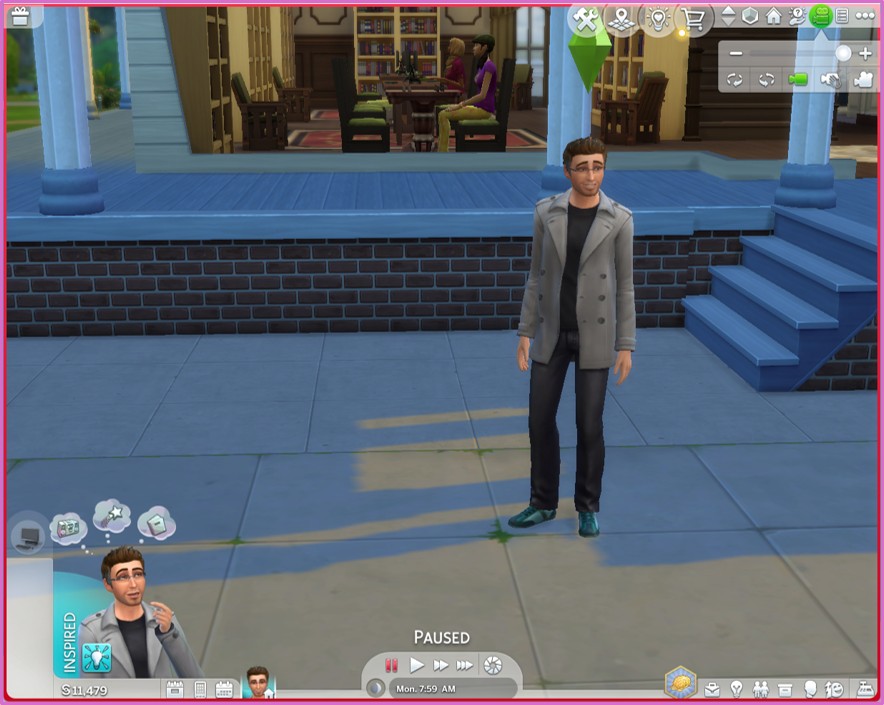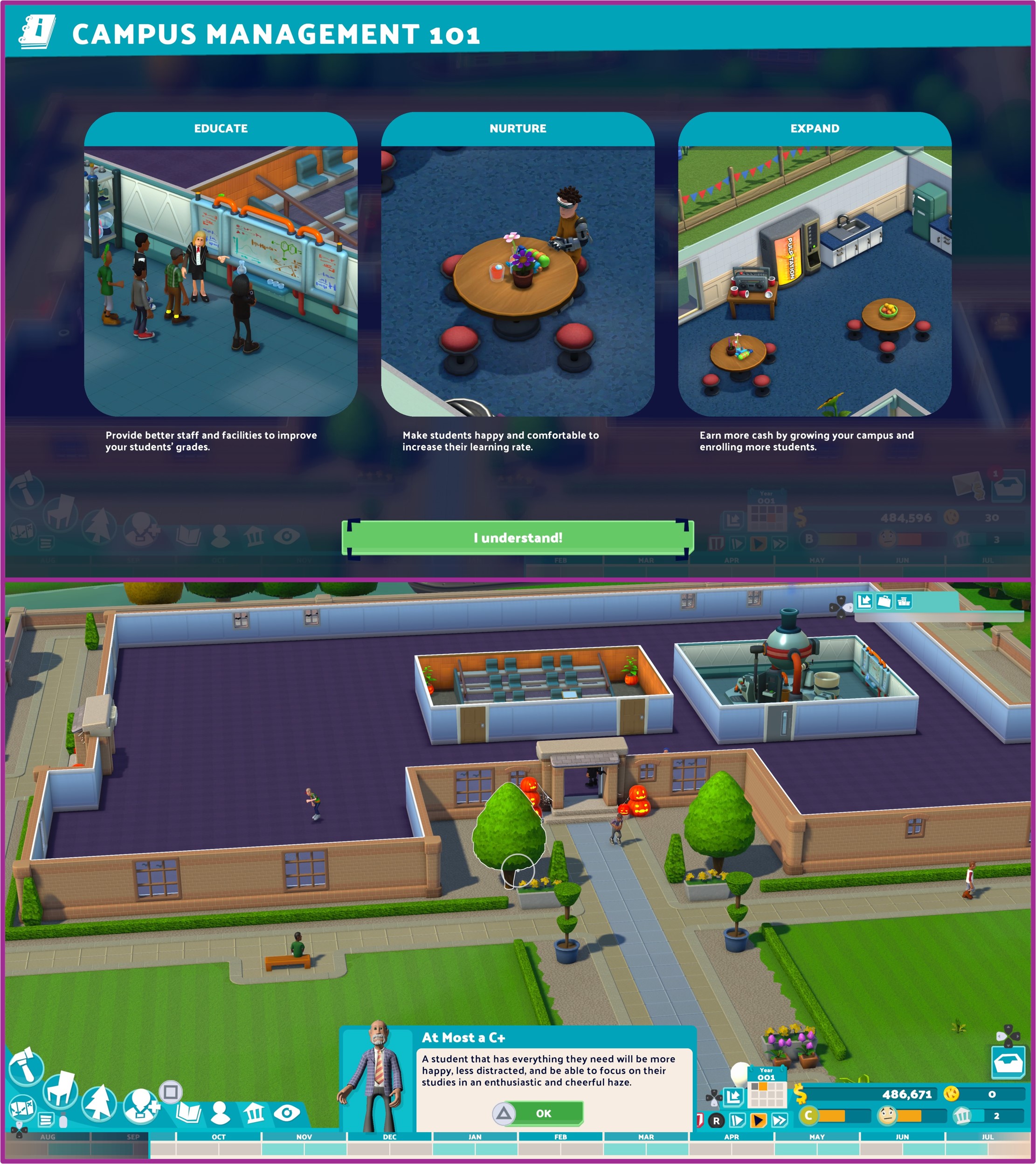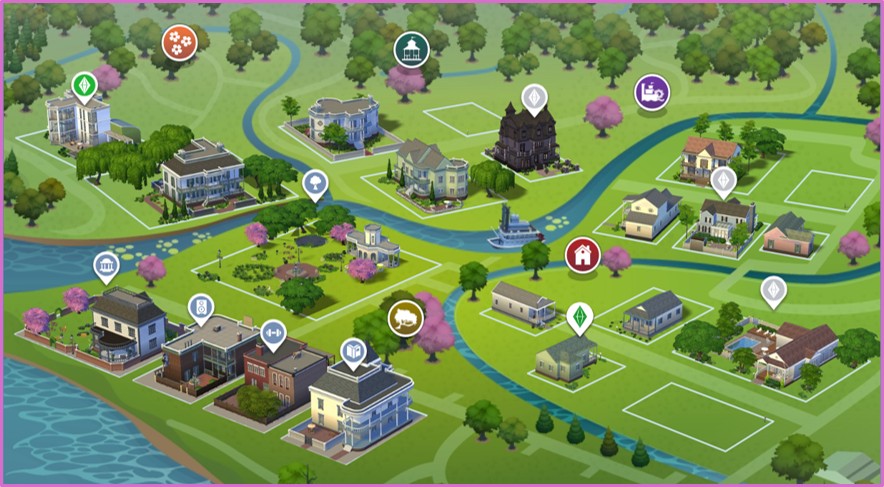This post isn’t about universities. Although I do come onto them at the end. And it’s not about teaching and learning. Although we will also talk about teaching and learning by the end too. Really this post is about playing video games.
You may have seen that the wonderful game The Sims is 25 years old. If you’ve never come across it, it’s basically a life simulator where you take control of little people and lead them through their world. It’s a lot more fun than you’d think from that terrible description. Now on it’s fourth version, it’s become a global phenomenon which had around 85 million players last year. It’s a genuine cultural phenomenon. This anniversary got me thinking a few things. First, given that I was playing The Sims while a student, how old does this make me? Ugh. Probably too depressing a subject to contemplate, so let’s gloss over that. Second, I remember that when it came out, despite being a single-player game, it created quite a community amongst my friends. Because of its endless customisability, it was probably the first game where we connected with other players online – years before Fortnite and the like. Third, the anniversary has also stirred long-dormant memories of the many simulation games I’ve played over the years. I’ve been in charge of towns, hospitals, football clubs, theme parks, empires. It makes me wonder if I have some sort of god complex, but we’ll gloss over that too. If you’re interested in these sorts of games too, I’d highly recommend Sid Meier’s autobiography.

I still play these games when I get a chance. Although just this weekend when I happened to mention this, someone went “You still play on the PlayStation?”. Now this guy plays the ukulele, so I’m not sure he should be the first to throw stones, you know. In the past, when someone suggested that this was somehow a lesser way to spend one’s free time, or childish in some way, I’d point out that the video game industry is one of the largest industries in the world, and in 2022 generated $184.4 billion (compared to $26.2b and $26b for music and film during the same period, respectively), that 61% of the US population play video games for at least one hour a week and that 29% of players are 50 or older, that video gaming has been shown to improve manual dexterity, social skills and cognitive functions, that online gaming helped keep people connected during the COVID lockdowns (including our own kids), that they are a topic which my boys and I can always talk about even as our other interests and cultural reference points diverge, and that they are enormously fun. But thank goodness I don’t do that anymore.
Although there is an increasing amount of interest in video games in learning and teaching these days, I’m surprised that the interest isn’t greater – given the huge scale of the industry, the sheer number of people playing games, and the wide demographic appeal of video games. I’m not talking about adopting gaming principles here (the gamification approach), but rather use of the games themselves. In some disciplines, this is getting fairly well established. Archaeology has a whole sub-discipline called archaeogaming, which focuses on archaeology in, and of, video games. I’ve seen Sea of Thieves used really well as a collaborative learning environment. Of course, Microsoft long ago realised the potential of Minecraft in an education context and there are loads of resources already established to support this. In fact, you can read more about what we did to help new students connect during the pandemic using Minecraft here.
I think that the increasing focus on the use of video games now is due to the fact that those of us who were the first real generation to grow up with video games in our houses, are now adults and, like, in charge of stuff. Many of us kept on gaming and when we had children, were able to play across the generational divide. Is there anything more beautiful than a parent sitting next to their darling child in the front room, TV shining, teaching valuable lessons about cause-and-effect by firing a banana out of your fast moving kart while drifting around the track like a god-damn pro? It’s made our two the resilient young adults they are today, for which they are very grateful I’m sure.
I digress. There’s an increasing body of work to show of the potential benefits to the student experience of engaging with games in our modules. UNICEF work has highlighted that playing video games can help children to “experience a sense of control, have freedom of choice, experience mastery and feelings of achievement, experience and regulate emotions, feel connected to others and manage those social connections, imagine different possibilities, act on original ideas, make things, and explore, construct and express facets of themselves and others”. Sid Meier talks about this too, and the importance of meaningful decisions in video games. Role-playing games such as DnD (I know, it’s not a video game as such, but bear with me because this research is Irish) which demand player creativity have a positive impact on players’ well-being and sense of self.
And this is all before we get onto the topic of ‘serious gaming’, which is really just gamification of learning, or using gaming technologies like VR.
In my own teaching I’ve used The Witcher 3 and Indiana Jones and the Fate of Atlantis to talk about taphonomy, I’ve used GTAV for crime scene science, Assassin’s Creed for archaeology, I have a PhD student using Minecraft to enhance simulation-based learning. One of my greatest gaming-work-related thrills was meeting ex-Boro defender George Friend while working up the Football Academy at Teesside having had him as an astounding loan signing in Football Manager. Kept that to myself so as not to embarrass him.

I’m only half-joking when I say that years of playing SimCity, Theme Park and Planet Coaster have helped me in leadership positions (a lot of my experience of being a Dean was really just prioritisation and effective resource management, which is the basis of these games). I’ve spoken about this before, but years of Football Manager definitely helped me early on in my leadership career to appreciate the importance of a balanced team and getting people to play to their strengths within a unified team strategy and philosophy. I’m doing a leadership development course at the moment, and one of the modules is on governance and management, and they’d be well served including a day of Cities: Skylines in there.
Ridiculously, the Venn diagram of my love of management and sim games and my day job is a big fat circle, seeing as I’ve got a save of Two Point Campus underway. It’s a university sim. There are probably deeper questions to ask about myself as to why I’d unwind from my job as a university leader by simulating being a university leader (again, we’re going to gloss over that) but my team should at least be grateful that I’m sandpitting my more extreme ideas digitally rather than with them. I wonder if I can get extra credit on my leadership course for this..?

The Sims continues to be an absolute joy. If you’d like to read more academics go on about it in terms of diversity and inclusion, or cosy gaming and the like, check out this series of articles in The Conversation.
